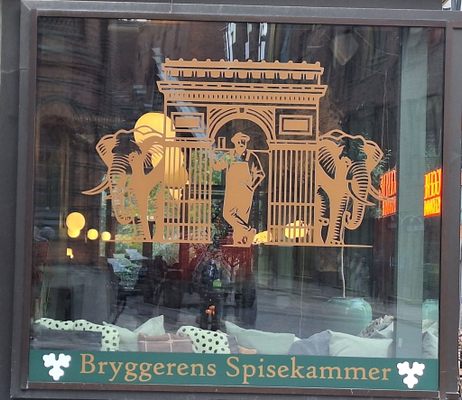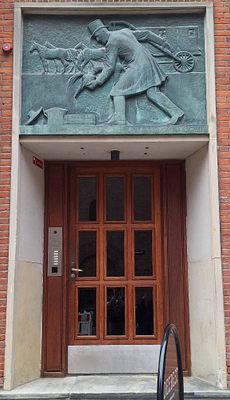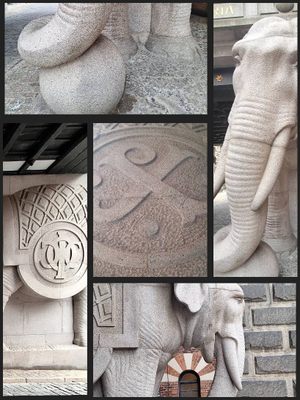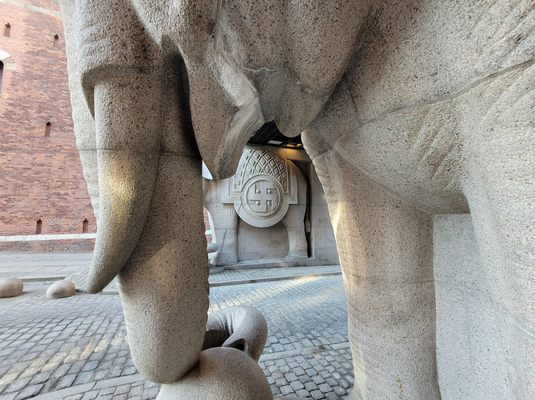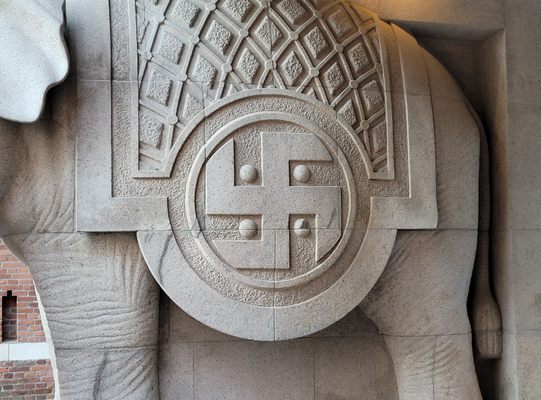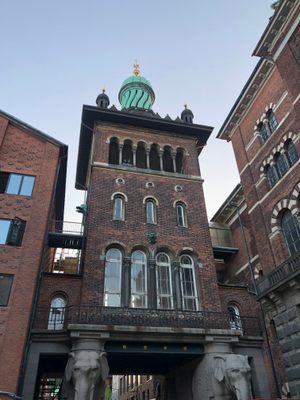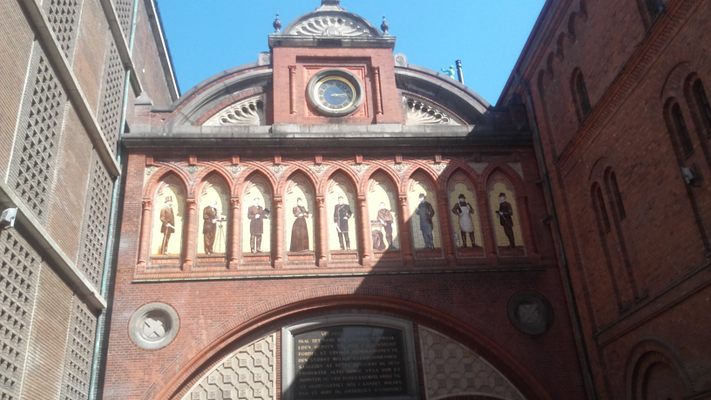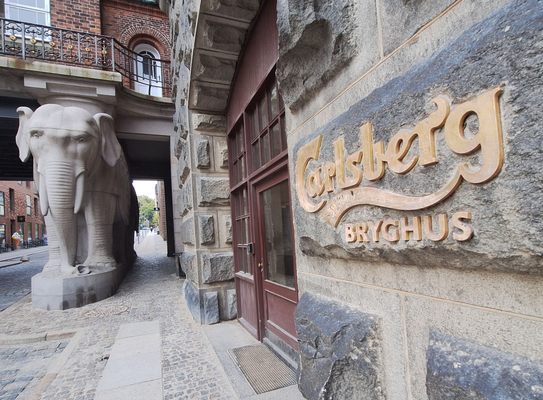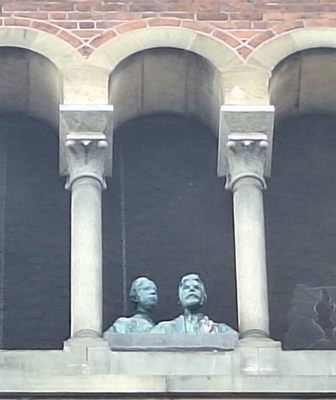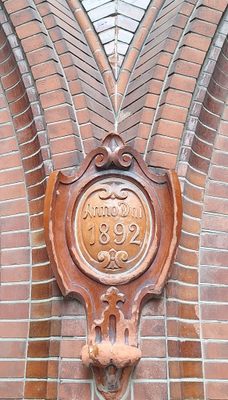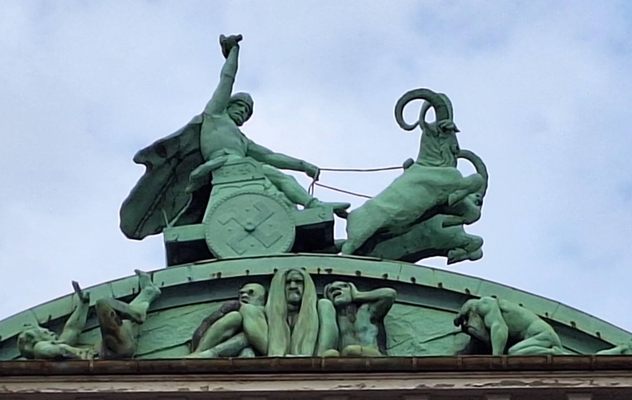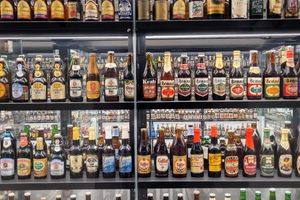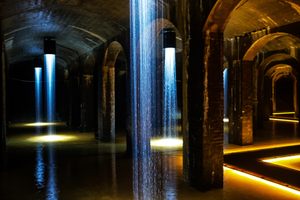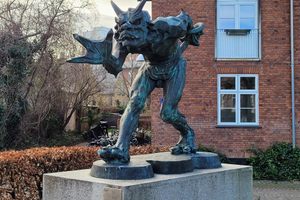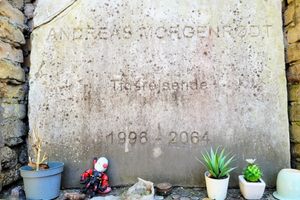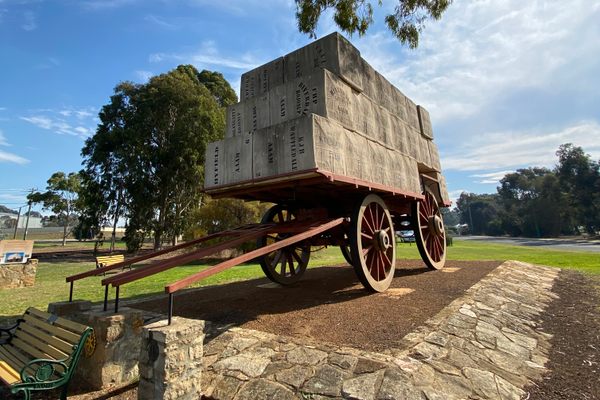About
No tour of the Carlsberg Brewery is complete without a visit to the famous Elephant Gate, with its four life-sized granite elephant statues that, uh...whoa, hey, wait a minute. Do those elephants have giant swastikas on their sides?
They do indeed, but the symbol signified something else entirely when the gate was first built. Completed in 1901, the Elephant Gate was part of a building complex for the Ny (New) Carlsberg Brewhouse, started by Carl Jacobson to compete directly with his father who owned the original Carlsberg Brewery (thereafter renamed the Gamle — or Old — Carlsberg Brewery).
When first launching this contentious new venture in 1882, Carl felt the need to adopt a symbol that would bring good luck and prosperity and chose the swastika, which since ancient times had been associated with good fortune (in fact, the word “swastika” comes from a Sanskrit word meaning “lucky or auspicious object”). Used in the official trademark for Ny Carlsberg, the swastika suddenly became quite inauspicious in the 1930s, and its use by the brewery was forever discontinued in 1940.
The elephant statues, however, remain and include other symbolism beyond the now-stomach-churning good luck charms. Each elephant bears the initials of one of Carl’s four remaining children (four other children had died by the time the gate was built); thus, the swastikas were meant not only to bring good fortune to the brewery but also health and prosperity to each surviving child.
Moreover, Carl saw elephants themselves as symbols of stability, vigor, and loyalty — an image which is perhaps somewhat undercut by going into business against your dad, but was generally pretty good for the brand long-term. Carl sponsored the elephants at the Copenhagen Zoo; the brewery stables occasionally housed elephants; and Carlsberg eventually launched a strong, rich, “Elephant Beer” in 1959.
The Elephant Gate is the most famous Carlsberg landmark, and once served as one of two portals to the Ny Carlsberg complex. The tower above the gate once served as a water tower and herb silo, but now it stands vacant, as does the rest of the old facility; on-site beer production stopped entirely in 2008, and the landmarked buildings are now being redeveloped into a new residential neighborhood.
Update: As of August 2019, the gate is currently obstructed by construction.
Related Tags
Know Before You Go
The gate is a stop on the brewery tour, which can be booked in advance.
Community Contributors
Published
March 30, 2016





